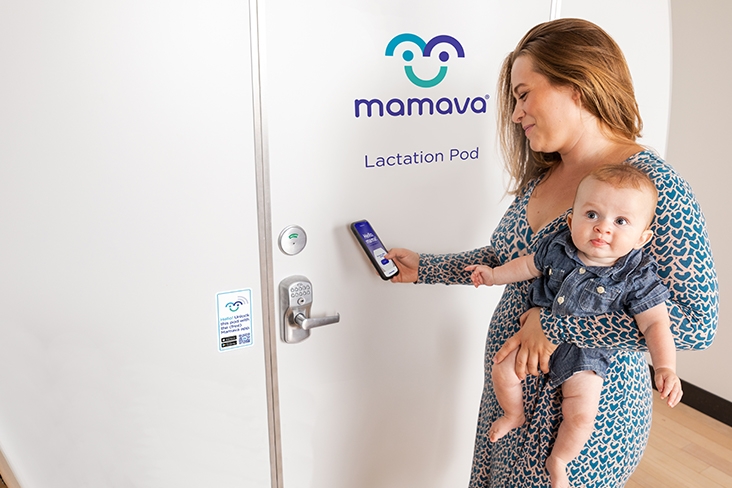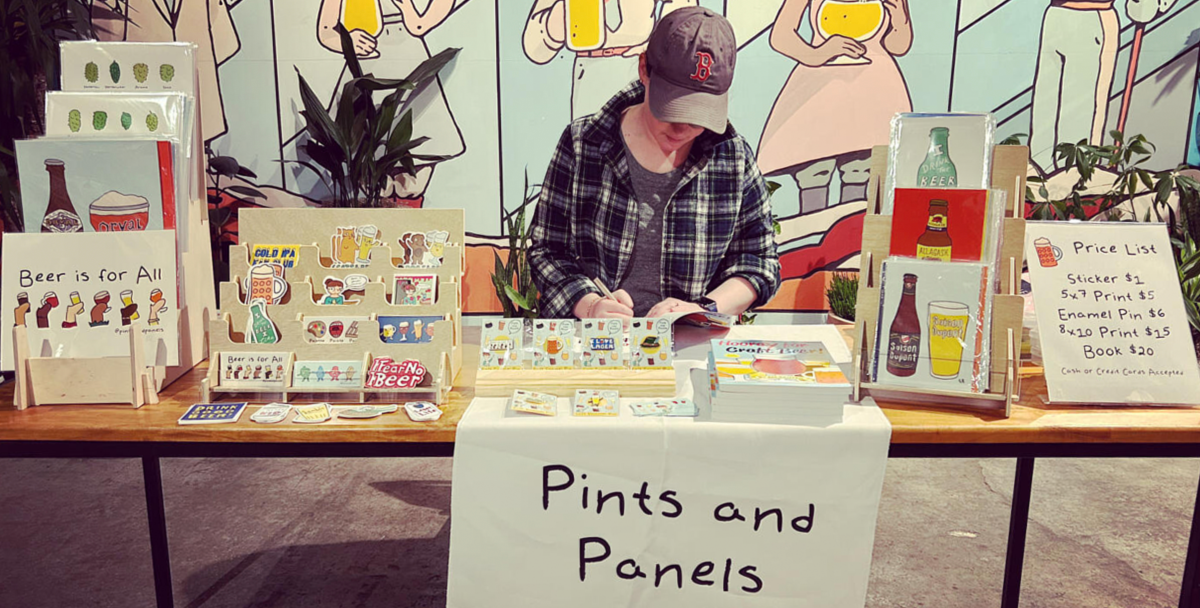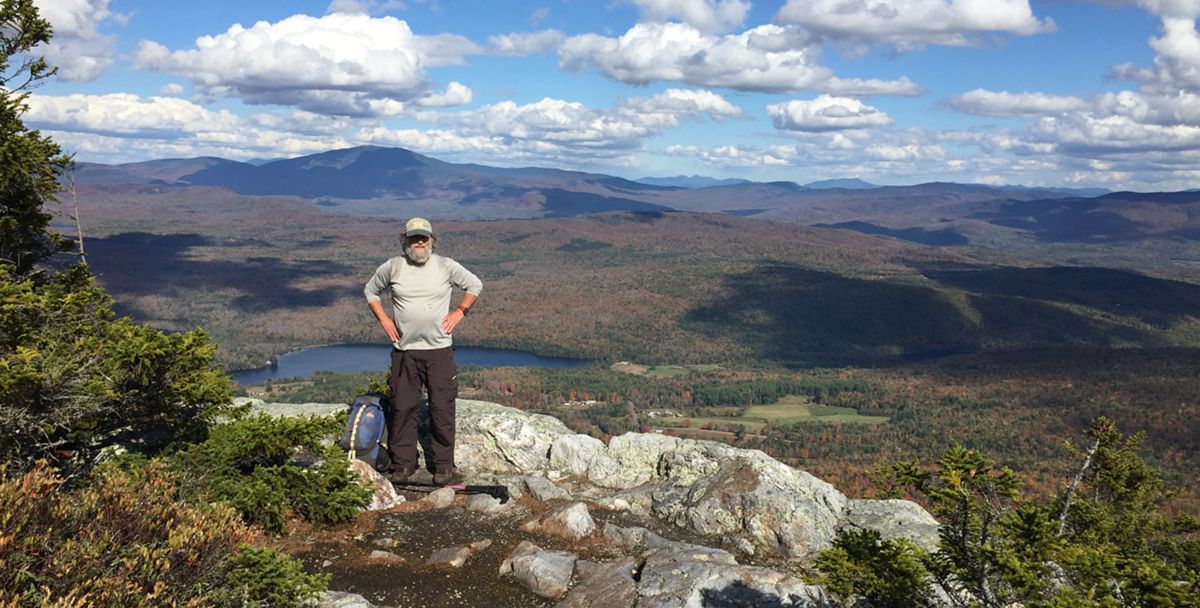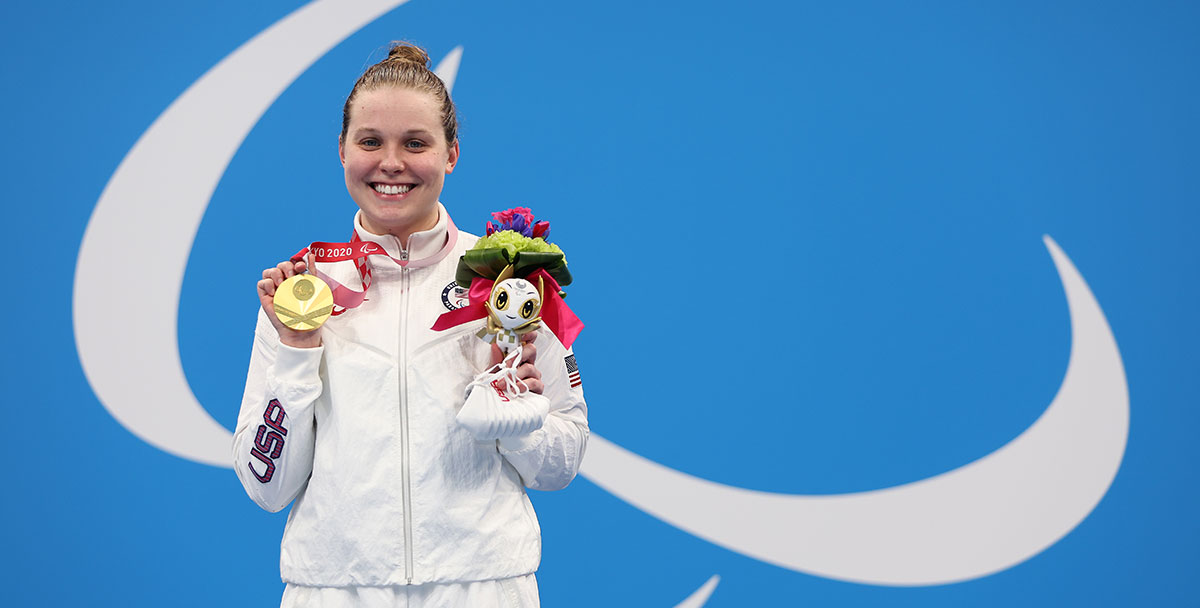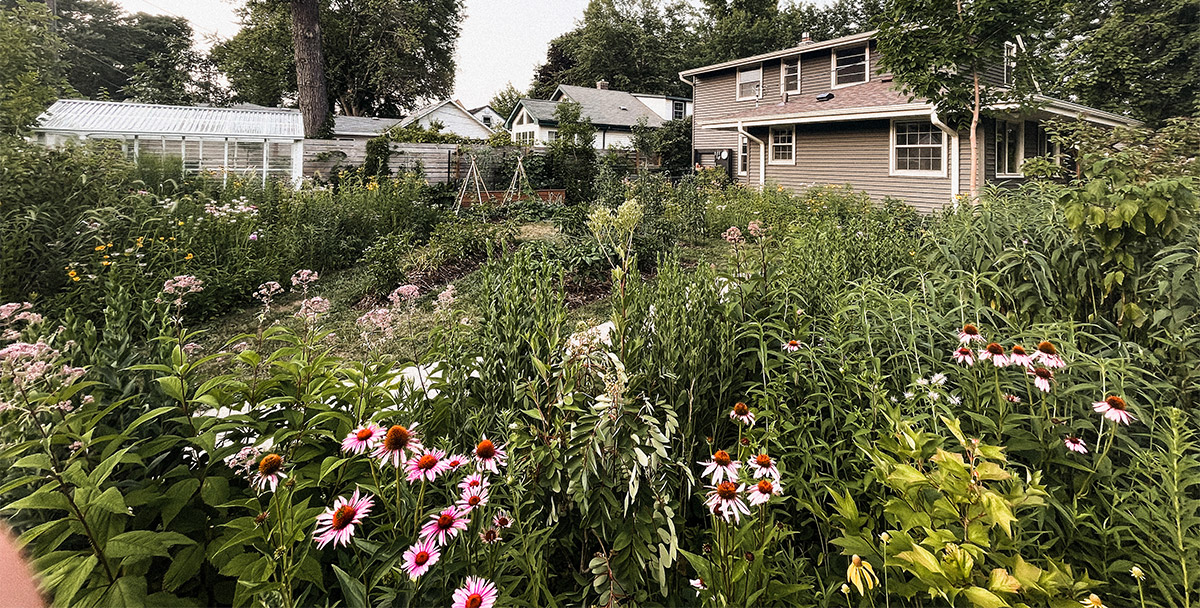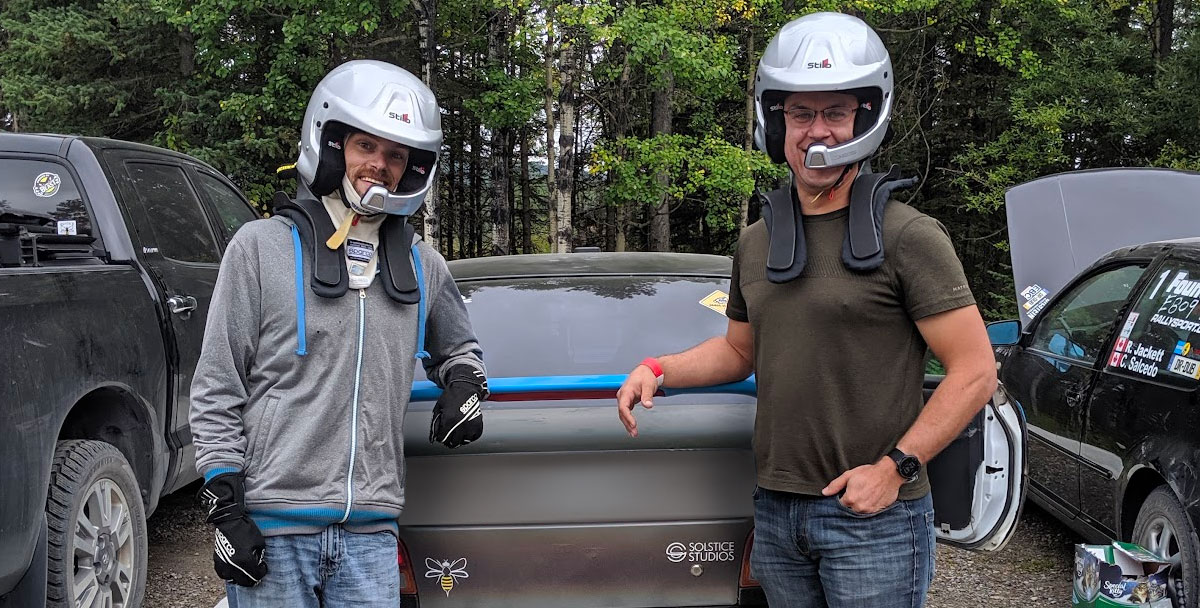On Labor Day 2006, Sascha Mayer settled into a patio chair to breastfeed her second baby, Storey, when she caught sight of a headline on the front page of The New York Times: “On the Job, Nursing Mothers Find a 2-Class System.”
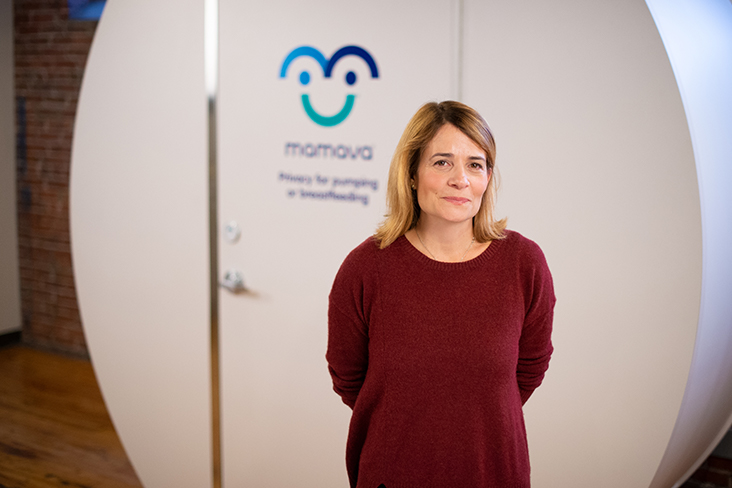
With one arm supporting her nursing daughter, Mayer picked up the paper with her free hand and read that many workplaces weren’t giving new mothers the time and space to breastfeed. At the time, there were no federal laws requiring companies to give employees breaks to pump milk, even though health organizations ranging from the American Academy of Pediatrics to the World Health Organization recommend that infants be breastfed exclusively for the first six months.
Many women who were given breaks to pump had to jam into small public restrooms with little privacy to do it. “A class system had emerged around this fundamentally human function, which just struck me as completely wrong,” Mayer says.
In the two-class system laid out in the article, Mayer was in the privileged set. Working at design and branding firm Solidarity of Unbridled Labour, she had private office space and the freedom to take breaks as needed.
But even with those advantages, choosing to breastfeed wasn’t easy. Mayer’s work required a lot of travel, which meant spending hours in airport bathroom stalls pumping milk.
She had a vision: spacious, free-standing pods where moms could breastfeed or pump no matter where they were. In 2008, she proposed the concept to executives at her firm, who gave her the design resources to work on a branding and business plan.
Two years later, the Affordable Care Act passed, establishing a federal mandate that employers provide women with reasonable break time and space to pump milk. Companies now had to figure out what that looked like, but Mayer already knew: her pod, equipped with benches, mirror, outlets and USB ports. She left her firm to focus full time on the idea.
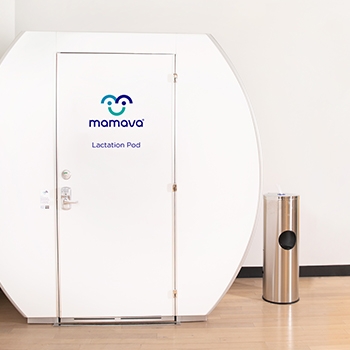
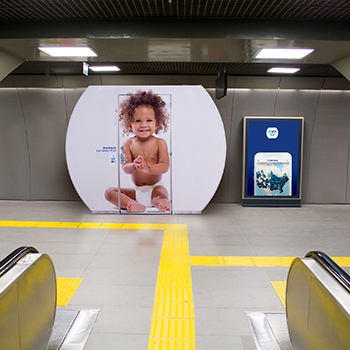
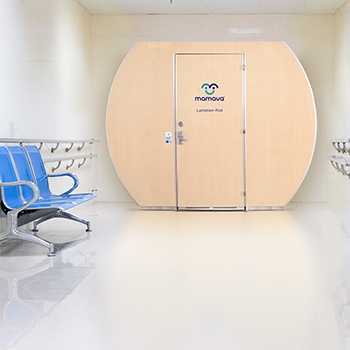
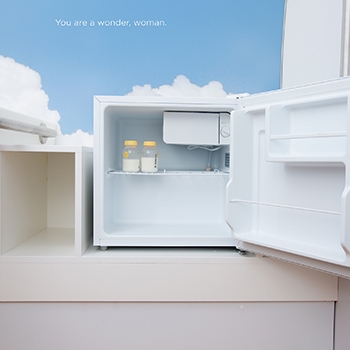
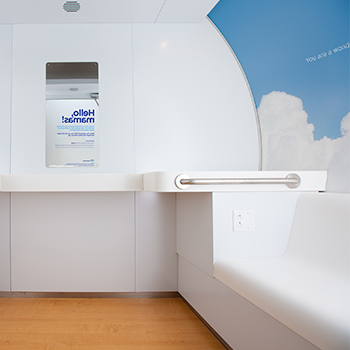
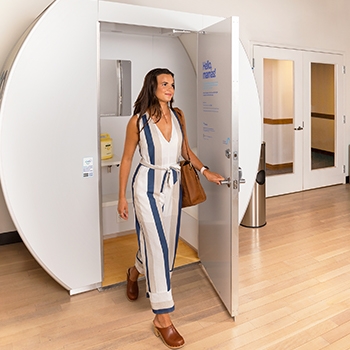
For three years, she worked on growing her pool of investors, designing and manufacturing pods, and pitching the pods to companies and public venues. In 2013, Mayer’s fledgling company, Mamava®, launched its first lactation suite in Vermont’s Burlington International Airport.
Today, Mamava offers four customizable pod designs that are found nationwide in schools, military bases, corporate offices, museums, sports stadiums and more. As a New England-based company, landing a contract with Fenway Park, home of the Boston Red Sox, was particularly exciting, Mayer says. Last year, Mamava installed more than 100 pods in Walmart stores across the United States.
“It was really the culture catching up,” Mayer says, referring to the protections offered in the Affordable Care Act.
Mamava has a mobile app that helps moms locate lactation pods and access them with its smart lock system. With the app, moms can also submit tips about non-Mamava locations good for breastfeeding or pumping. The free app now lists about 6,000 other public-facing lactation spaces, all of which have met Mamava’s standards for privacy, public access and amenities.
“The most wonderful part about scaling the business is that the moms themselves have been our partners in this,” Mayer says. “The moms – we call them lactivists – are often the ones that are our squeaky wheels saying, ‘Hey, you don’t have a place for me to use my breast pump. How about this company Mamava?’ They’re the carriers of the torch. I’m so indebted.”
